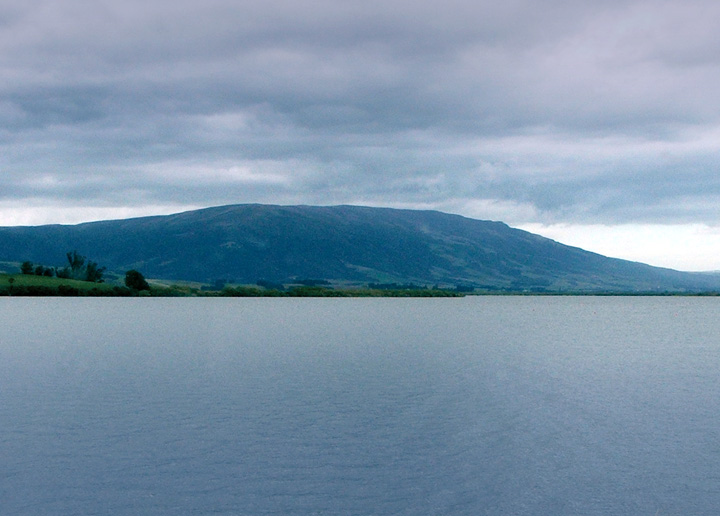The early Maori gave:
Where's his forgotten grave?
We know not; but thou'rt still the same
Gloomy and dread Maungatua.
Thou art the spirits' mountain still,
Though aye thou dost not frown,
But on the plain look'st down,
Which now the white-browed ploughmen till,
With changeful face, Maungatua.
Thou hast for us lost half thy gloom,
For we can see thee smile,
And pleasant look awhile,
When summer's sun makes flowerets bloom,
And lights thy brow, Maungatua.
And when the winter's southern wind,
With many a keen-toothed blast,
Has snow upon thee cast,
Thy hoary head proud o'er thy kind
Thou holdest high, Maungatua,
 |
| Maungatua (Mauka Atua) Source: Wikipedia |
Thine aspect ever seems to change,
As when, on breezy day,
The cloud-shades o'er thee play
And fly along thy lofty range;
Yet thou'rt the same, Maungatua.
The spirit that in Nature lives,
And speaks to him who hears,
Arrayed in strength appears,
And to thy massive mountain gives
Thy spirit-name, Maungatua.
Alexander Bathgate (1845 – 1930) New Zealand (born Scotland)
Source: Australian poets, 1788-1888; by Douglas Brooke Wheelton Sladen, Cassell publishing company, 1890
The name of a range of mountains overlooking the Taieri plain, near Dunedin, Otago, New Zealand. It means "the range" {maunga) "of the spirit" (atua). The sound of the g in Maori is soft

No comments:
Post a Comment
Please keep your comments relevant and free from abusive language. Thank you. Note that comments are moderated so it may be a day or two before your comment is posted - irrelevant or abusive comments will not be published.